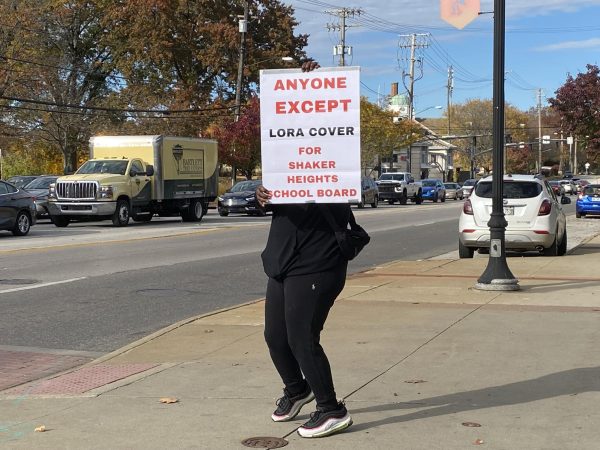Careful What You Post
We spread fake news on social media without realizing it
We think of fake news as Russian bots on Facebook or white supremacist news outlets. Some people even identify fake news as mainstream media organizations. In reality, we are all perpetrators of fake news.
Fake news is not confined to a single party. Every day on Instagram, I see misleading or utterly false posts circulating on hundreds of people’s stories. Just this week, a post circulated that stated, “Biden promised zero deportations during his first 100 days. In his first 29 days, Biden deported 26,248 migrants.” This is false.
Two days after his inauguration, Jan. 22, Biden enacted a 100-day pause on deportations. However, we live in a democracy. What the president says is not law; a system of checks and balances that limits executive power. U.S. District Judge Drew Tipton ended the deportation ban after Texas Republicans sued Biden’s policy in federal court. Additionally, the president did not deport these immigrants personally, as the post implied.
This post was misleading and easy to fall for. Fake news is dangerous, especially because it is too often taken at face value. Maybe you posted this last week, too. It came from a source that seemed reliable and suggested credibility. But before posting something all of your followers can see, check your facts. Even a 24-hour story has a lot of power to serve people’s confirmation biases.
Some fake news on social media is less overt. One of the accounts I follow and often love on Instagram, @feminist, had another viral post, an illustration that read, “Stop Criminalizing Abortion.” The caption urged people to donate to Planned Parenthood, a non-profit organization that focuses on protecting reproductive rights in the United States. Though not false, this post was misleading.
Abortion is legal in the United States. Though red states have tried to limit abortion rights since the Supreme Court case Roe v. Wade that legalized abortion in 1971, they have ultimately failed. No state in our country is able to criminalize abortion.
This post went viral because it confirmed people’s beliefs that abortion is a right and it is under threat. This week, the Supreme Court will hear a case concerning whether federal grants can be used for abortion programs. If they rule against federal grants, abortion will be less accessible, mainly for those without the financial resources to afford it. On Feb. 18, South Carolina passed a bill that would ban most abortions in the state. The next day, a federal judge suspended the law, as it disregarded the rights guaranteed by Roe v. Wade. Restrictions on abortion have attempted to override Roe v. Wade since it legalized abortion, but so far they have been unsuccessful because of the effort we put into protecting reproductive rights.
Ultimately, the post was unhelpful. It does not educate people about what is really happening with abortion. Learning about events like these can help keep the public accurately informed about the fight to protect reproductive rights.
There are better ways to get your message across. To bend the truth is to lose the trust of the public and to mislead those who see your posts. Before you post something onto your story, fact-check it. Find a reliable source such as AP News, Reuters, The New York Times, or another trusted news outlet that confirms the facts you are about to share. Posts should serve an educative purpose: to raise awareness, inform, or organize people to help a certain cause. Social media indulges our worst tendencies to search for confirmation bias. We need to fight this inclination and make sure we are amplifying the truth with what we share to the public.
Comment using your Facebook, Yahoo, AOL or Hotmail account








